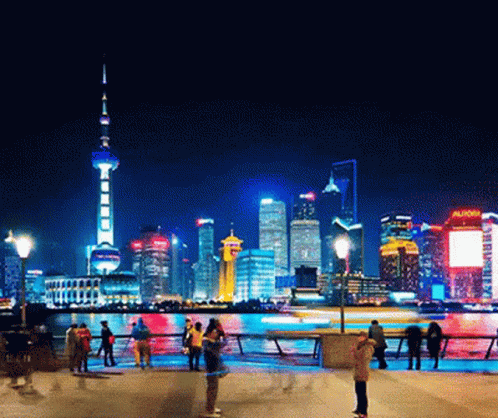Similarities between my experience in China, and the lessons from Socialism Sucks

My thoughts on socialism
For the entirety of the last semester I lived in China. Less than one week ago, I returned home from a full time study abroad program at Fudan University, located in Shanghai China. I greatly enjoyed my time abroad for many reasons but one of the most notable was getting to answer the questions that my friends and family curiously asked about the country. One of the most common questions had to do with the degree of communism. Whether it was a joke about surveillance from the Chinese Communist Party (CCP), or a comment on how different it was from America, I had many instances where the topic of socialism was discussed. As I watched this week’s presentation on the book, “Socialism Sucks” I was excited to hear about his perspective on the global as well as China’s experience with Communism. Although I thought I had become familiar with the topic from my recent experience, I was surprised that I was still able to learn from this presentation. My biggest takeaway from reflecting on this presentation is that at most basic, the issues with communism stem from a lack of proper incentives.
Effects of Incentives
When you have a free market society, the level of supply and demand, which are reflected in price, show the balance of incentives. It allows entrepreneurs to create niches and innovations to make a profit. I believe that his use of the relative comparison of alcoholic beverages in each country was a helpful way to illustrate this point. For example he explained that in Venezuela, there is no beer, because the government just didn’t get around to adding barley to the import budget. Whereas in a free economy this would obviously represent a gap in the market which would quickly be taken advantage of by a savvy business man, for the government it simply isn’t a problem. They have no issue with a lack of beer in the country because they have no reason to care. There simply is no incentive to import and produce this great beverage. On the contrary, while on my way to and from China, I visited several other places such as New York City, Dubai, Abu Dhabi, Singapore, Seoul, and Tokyo. All of these places were all highly capitalist countries. One of my most interesting take aways was how the McDonalds existed in each of these locations in nearly the exact same way. For me, this example contrasts the wide disparity in alcohol that the presentation discussed. Although there were different prices reflecting the demand of the inputs, it was amazing to see how one company could span the whole world while still offering nearly identical products. This is something that could never be attained by a centrally planned government. It was purely the result of aligned incentives for a business to make a consistent and reliable product for markets around the world. That is one of the coolest things that I see in the model of capitalism. When incentives align, there are opportunities to provide a high quality of life, and great products no matter the location.
How free markets lead to innovation
When it comes to my own experience in China, It was easy to see this same principle at work. In many of my classes we discussed the role of state owned enterprises in the Chinese stock market. In all of these classes, we discussed how although they still were owned by the state, they were only thriving because they were allowed to participate on a free global market. It was incredible to hear the stories from the locals about how quickly huge markets would spring up as soon as there was proper deregulation. One notable example was the use of micro mobility services such as AliBikes. At any subway station, and every street corner, you could find thousands of rentable bikes from various companies which were extremely convenient to get around the city. These were only possible because of the recent deregulation of transport laws and regulations in cities such as Shanghai. When the government removes their overbearing laws, random businesses that no one had previously thought of are able to spring up because of the incentive to innovate. I spent many days in the downtown Pudong district during my time in Shanghai. It is one of the most spectacular metros on the planet. I enjoyed how the speaker emphasized that this was only possible because of the removal of restrictions, and the encouragement of the free financial enterprise in this area.
Conclusion
Overall I would consider myself a strong proponent of capitalism even before watching this video. I have lived in America all my life which allowed me to get a great perspective while I lived in a pseudo communist economy such as China. But I still enjoyed reflecting on how the effects of economic systems really just boil down to who has incentives. If there is no reason to provide a constant and quality product like McDonald’s, then you will end up with low quality, and inconsistent products like the alcohol found in communist countries.
